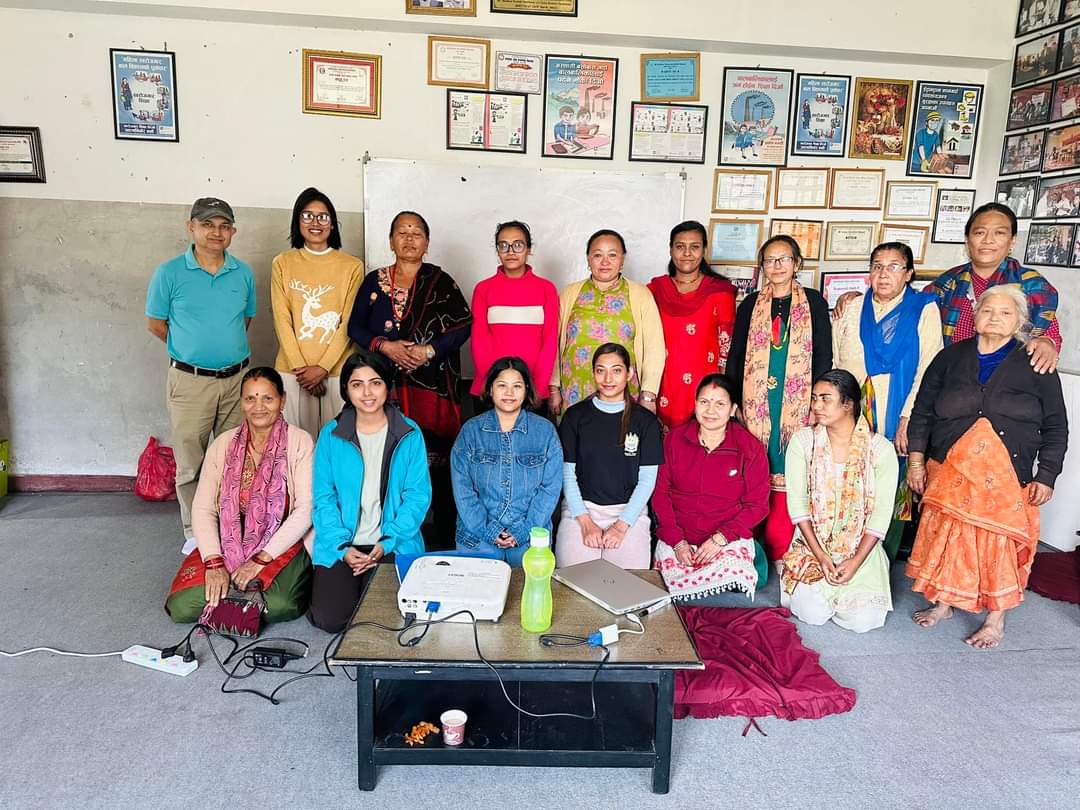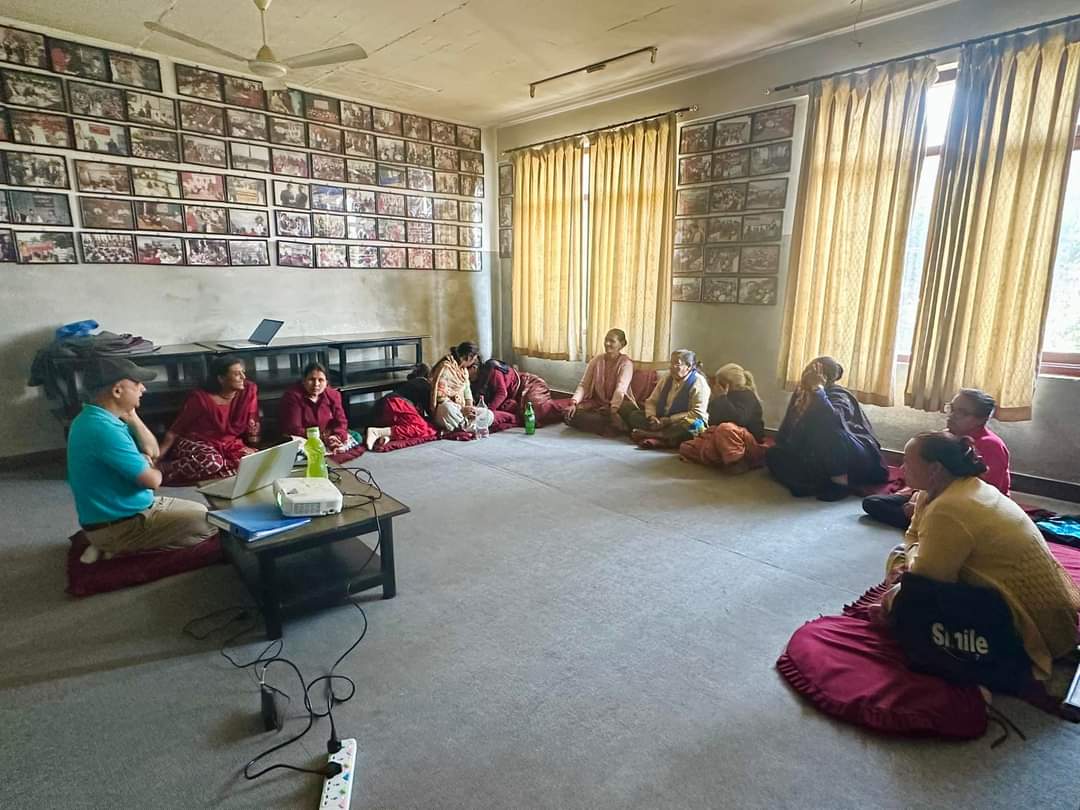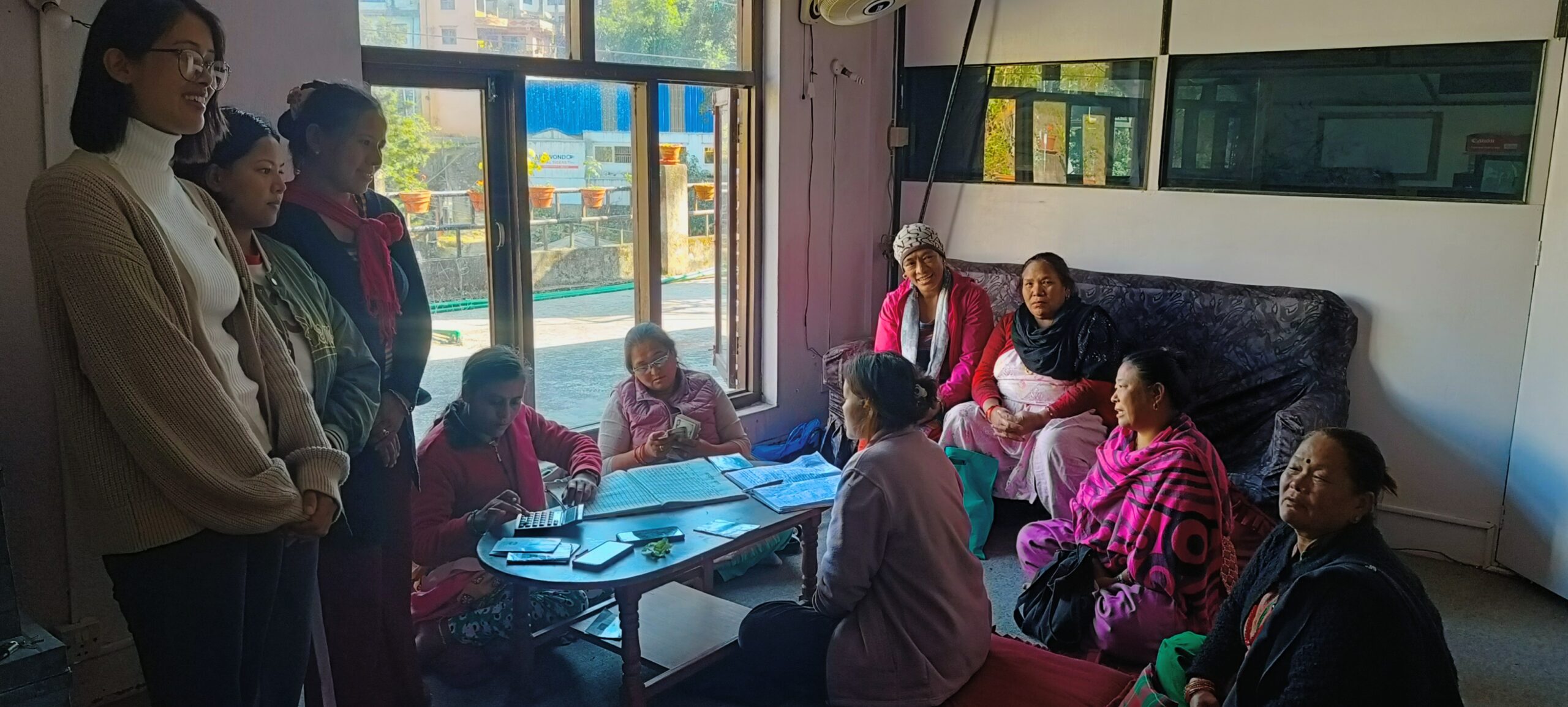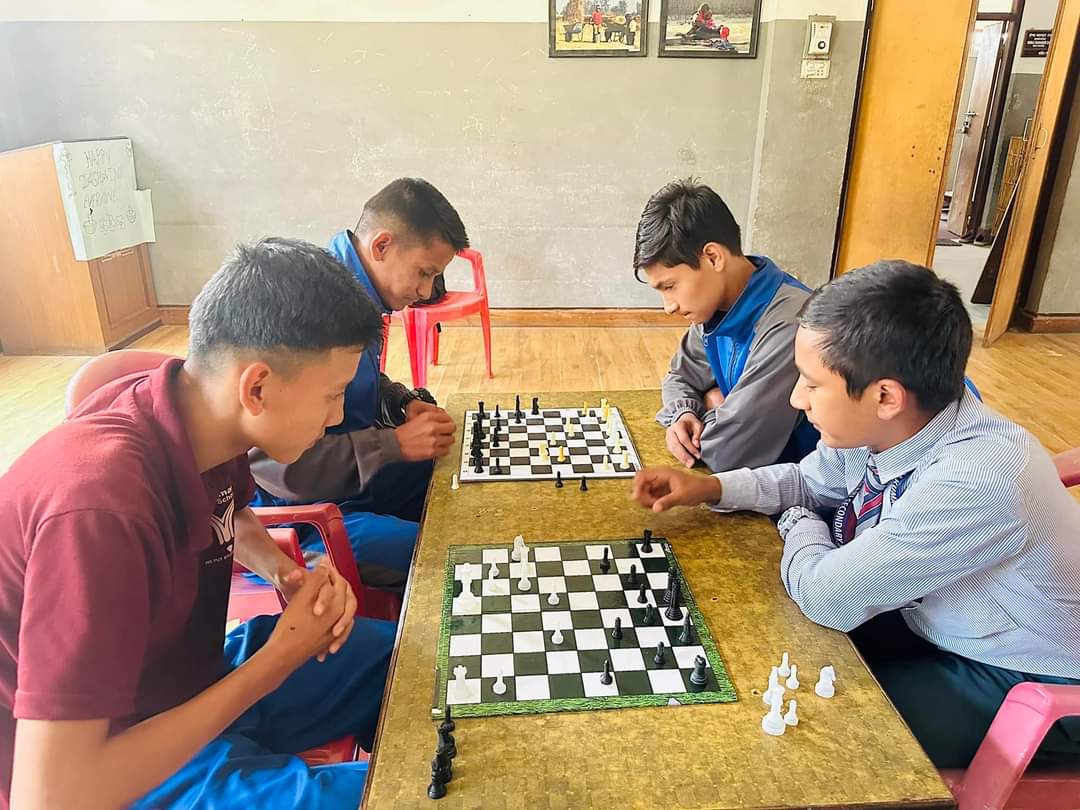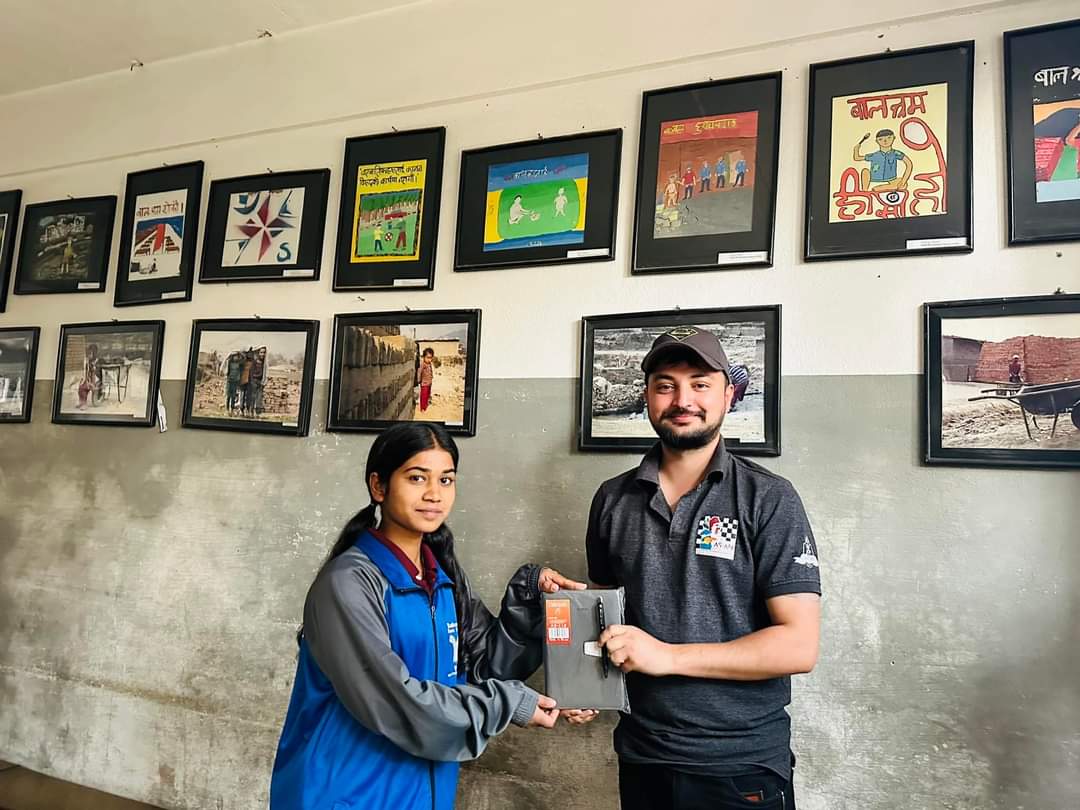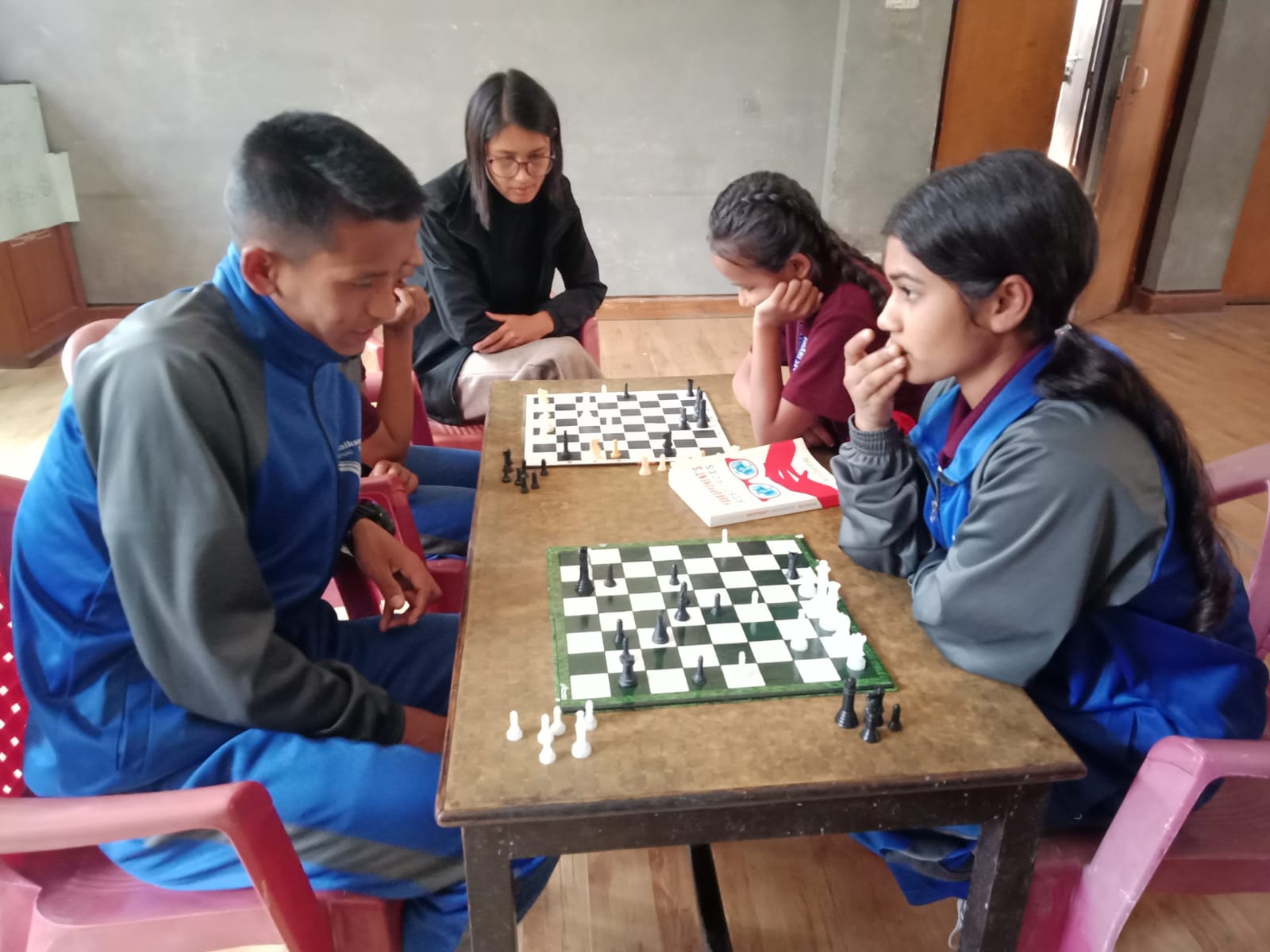Waste management is of paramount importance for several compelling reasons. It safeguards public health and the environment by preventing the spread of diseases, reducing pollution, and conserving valuable resources. Proper waste disposal and recycling practices mitigate the harmful impacts of waste on air, water, and soil quality, ultimately contributing to a more sustainable and liveable planet. Furthermore, efficient waste management systems can generate economic opportunities, create jobs, and stimulate innovation in recycling and waste-to-energy technologies, aligning environmental responsibility with economic growth. Waste management is an essential cornerstone of a cleaner, healthier, and more sustainable future for all.
The Waste Management program was done on the 5th of November 2023, sixteen total women participated in the session and actively took part in the discussion, the program was facilitated by Mr. Sharad Neupane who also worked on different social projects for Budhanilkhantha Municipality. The program was shortly started after an introduction where Mr. Neupane briefed all the women about the negative impact of using plastic and burning it.
ADULT LITERACY FOR COMMUNITY WOMEN
Literate women have the knowledge and abilities necessary to seek careers, engage in community life, and make wise judgments. By giving women the confidence to advocate for themselves, participate in social and political life, and contribute to the promotion of both gender equality and society at large, adult literacy helps to advance gender equality. Adult literacy programs for women essentially operate as a catalyst for positive change, promoting equality, empowerment, and sustainable development. Among the important subjects discussed in this session were the start date of the class, the times of the classes, and the participants’ areas of interest in learning. These committed adult women showed incredible energy and a strong desire to learn new things, especially when it came to vocabulary in English. They greatly enhanced their pronunciation during the training and learned how to write their names in English, which gave them greater confidence while talking about other parts of Kathmandu. They have also made significant progress in knowing the names of the days, understanding Sunday and Monday in particular. Observing their excitement and advancement in acquiring new abilities has been quite fulfilling. By providing them with essential knowledge and skills, literacy programs for women are a transforming endeavor that ultimately boosts their self-assurance and independence. Women can access better economic prospects and significantly increase their family’s income and overall financial stability by developing their reading and writing skills. Education also promotes gender equality and advances the rights of women in society by challenging and dismantling rigid gender norms. Additionally, literacy has a tremendous impact on raising women’s health knowledge and empowering them to make wise decisions regarding their own and their families’ welfare. The advantages go beyond the individual because educated women actively participate in social advancement and communal development, which strengthens the fundamental foundation of their communities. In the end, these initiatives have the potential to create a ripple effect, as literate mothers are more likely to encourage their children’s education, setting the stage for a brighter and more prosperous future for all generations.
SPORTS PROJECT: CHESS
Since every move played in the mentally taxing game of chess replicates a decision made in real life, it was chosen as the vehicle for these important life lessons. Seventy-six kids in grades 7, 8, and 9 enthusiastically participated in the program, which was started by national-level chess player Sushruth Dahal. Mr. Bikash, the school coordinator, and Principal Indra Bahadur Rai provided supervision. Mr. Dahal captivated the pupils’ attention and sparked their passion right away with inspirational movies and chess strategies.
The dates of the second and third sessions, which spanned four consecutive Fridays, were September 15 and October 6, respectively. Chess provides kids with several benefits, including improved critical thinking, problem-solving, and strategic planning abilities that support cognitive growth. Their focus, judgment, and the important traits of patience and endurance in the face of difficulties have all improved as a result of the game. It relieves stress, improves memory, and promotes strategic thinking. Chess also encourages social interaction, good sportsmanship, and the growth of critical time management abilities. The last session, which is slated for the third week of November, is expected to solidify the students’ passion for this strategy and mental acuity game while also enhancing their intellectual and life abilities.
Finally, on November 24, all children from grades 7, 8, and 9 participated actively in the final friendly competition session. Out of the more than 50 students, three were selected as the game’s champions, and GFF Helps Nepal gave them encouragement in the form of a journal and pen. Additionally, Mr. Dahal received a thank-you gift for affection and a thank-you speech in appreciation for his time and labor.

